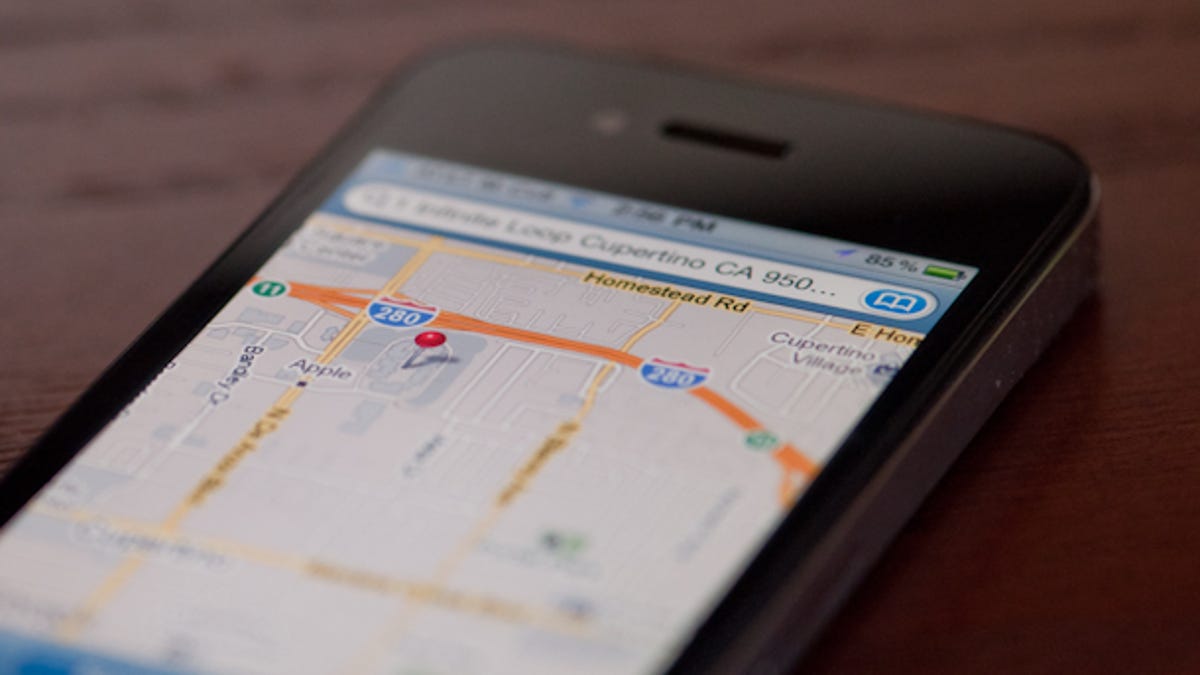Apple, Google, Facebook to talk privacy with Senate
A hearing later this week will point the lens on Apple, Google, and Facebook's mobile privacy policies. This is the second hearing following revelations that iPhones had been recording location data without consent.

A second U.S. Senate hearing over location privacy has been scheduled, a move intended to highlight how well companies notify their customers about when and how their whereabouts are stored and transmitted.
Following the U.S. Senate Judiciary subcommittee hearing about mobile privacy last week, representatives from Apple and Google are expected to again appear in Washington, D.C., on Thursday to answer questions from U.S. lawmakers in a new hearing that will also include Facebook.
The topic of a hearing, put on by the U.S. Senate Subcommittee on Consumer Protection, Product Safety, and Insurance, is "consumer privacy and protection in the mobile marketplace." It's being led by chairman Jay Rockefeller (D-West Virginia).
On the docket to testify as part of a witness panel is Bret Taylor, the chief technology officer for Facebook; Catherine Novelli, Apple's VP of worldwide government affairs; and Alan Davidson, Google's director of public policy for the Americas. Joining them is Morgan Reed, the executive director of the Association for Competitive Technology, and Amy Guggenheim Shenkan, the president and COO of Common Sense Media. Ahead of that panel is David Vladeck, the director of the bureau of consumer protection for the Federal Trade Commission.
Notably missing is the U.S. Department of Justice, which made up part of the opening act in last week's hearing, as well as a representative from Microsoft, which also collects location information from Windows Mobile 7 devices with a unique ID. During last week's hearing, the Justice Department discussed forward-looking policy initiatives to require mobile providers to collect and store information about their customers, which is likely to be a topic at Thursday's hearing.
Location tracking has become a particularly high-profile area of interest for consumers and lawmakers alike. Last month, researchers highlighted a location database file that was being stored on iOS devices including the iPhone and iPad. The file contained information like nearby Wi-Fi hot spots and cellular towers, which Apple later came out to say was a smaller part of a private, crowd-sourced database it maintains and makes use of on its devices to help them more quickly locate where they are.
Along with describing what the database did and what its intentions were, Apple promised to secure the location data, fix a bug that kept it from being logged for more than a few days, and delete the entire database when users disabled location services--all things it did with a software update released a week later. The company has also promised to fully encrypt this database on the phone itself as part of the next major iOS software update.
Despite those actions, and an extended testimony from Apple vice president for software technology Bud Tribble, lawmakers like U.S. Rep. Edward Markey still have questions for Apple, particularly about who else can access its location database. In a letter to Markey last week, Bruce Sewell, Apple's general counsel and senior vice president of legal and government affairs, noted that the company was indeed sharing the anonymized location information with a partner, something Markey said he was following up with the company about. That topic could be broached once again this week.
Google, for its part, has similar crowd-sourced efforts on its Android platform that grabs Wi-Fi hot spots and MAC addresses, as well as location information to help source traffic information for its mapping service. That traffic component is also built into the Google Maps application that ships on Apple's iOS, which Apple hinted that it might be working to replace later on down the line with its own data.
As for Facebook, which is a newcomer since last week's hearing, location has become an increasingly important part of the service since it unveiled its "places" feature late last year. That feature lets users check themselves and their friends into locations like restaurants, movie theaters, and other businesses by using the Facebook app on their mobile phone. More recently location has played a part in the company's deals service, which offers coupons, discounts, and other rewards to users nearby participating businesses, competing with Groupon and other sites like it.
Still, Facebook would definitely seem the odd company out compared with Google and Apple, which both create the system software and marketplaces that allow customers to acquire applications on their phones. Late last year, a report suggested Facebook was working toward that goal itself, though that did not come to fruition. Nonetheless, Facebook is integrated into millions of mobile devices, both as an app and a way to sync contact information, which could end up being the focus of the Senate's inquiry.

